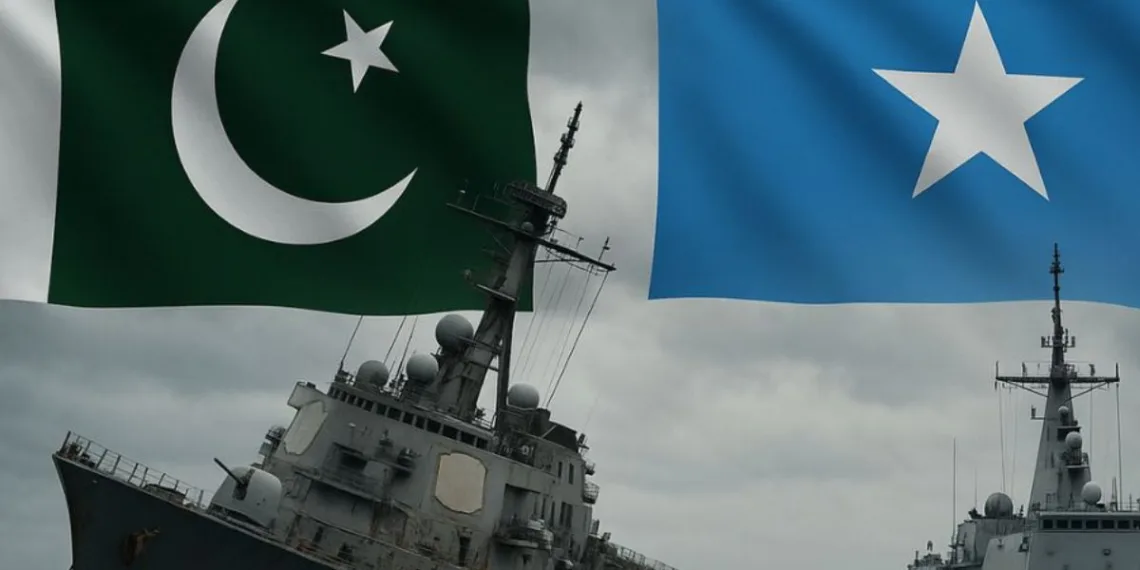When foreign navies sail into Somali waters, pledging to protect against piracy and ensure safe passage, they often bring impressive fleets and cutting-edge technologies. Yet the very communities whose lives and livelihoods are most tied to these waters, the fishermen, coastal villagers, small trading ports, frequently find themselves left out of decision-making. This is the classic local disconnect: security without inclusion. In Somalia today, protests and grievances are rising. Unless Somalis themselves lead maritime governance, outside “support” may do more harm than good.
Erosion of Local Trust
Somali fishermen have long complained of foreign industrial vessels entering their fishing grounds without proper permits or oversight. Over decades, weak central authority allowed large foreign trawlers to overfish Somali waters, stripping stocks and undercutting local livelihoods. In some places, licenses are handed out under opaque deals, fueling suspicions that outsiders are benefiting at the cost of locals.
As local fishers lose income, desperation rises. In past years, some took to vigilantism to defend their waters. Gradually parts of that impulse mutated into piracy. The result is a paradox. External military “security” is justified as protecting maritime commerce, yet its presence risks being seen as enforcer of foreign interests, not a defender of communities.
Recently in Puntland, tensions flared when 18 foreign trawlers entered local waters after authorisation from regional fisheries officials. Fishermen complained they had not been consulted and accused authorities of bypassing local voices. Such episodes illustrate that maritime governance, including, patrols, licensing and enforcement are divorced from local consultation, inviting resistance and resentment.
The Limits of External Security
Foreign naval operations, even under the banner of multilateral counter-piracy efforts, have had some success in suppressing hijackings and ensuring safe passage. The Combined Task Force 151 is a case in point. It is a multinational task force focused on piracy in the Gulf of Aden and off the Somali coast. However, such efforts often remain blind to local impacts. Patrols may deter opportunistic piracy, but they do little to restore fish stocks, resolve disputes over access, or rebuild local institutional capacity.
Moreover, external security actors may not understand subtle coastal dynamics, such as, clan relationships, customary fishing rights, seasonal changes, or tensions between coastal towns and central authorities. When enforcement is heavy handed, local protests emerge. Exclusion of local actors makes the social contract fragile. Without ownership, communities may accuse the state or external actors of being occupiers rather than partners.
Pakistan–Somalia MoU: Another Layer of Influence
Into this complex mix arrives the August 28, 2025 memorandum of understanding on defence cooperation between Somalia and Pakistan. The Somali Cabinet approved it, making it effective for five years. Under the MoU, Pakistan will provide training to Somali forces, from basic levels to specialised subjects including counterterrorism and peacekeeping. It also includes support for the Somali Navy, with technical assistance, vessel maintenance, formation of new naval units and capacity building for maritime patrols and anti-piracy operations. Pakistan further pledges to help modernise Somali military equipment and share defence technology expertise. A Joint Defense Cooperation Committee (JDCC) has been tasked to oversee coordination and meet annually.
At first glance this seems like welcome capacity building. But critics warn it may deepen Somalia’s dependence on external actors. One analysis describes the MoU as “a bilateral experiment with few public guardrails,” lacking transparency and broad local consultation. Another analysis cautions that it may import risks at sea, rather than resolve them. Pakistan may increase its influence in the Horn of Africa, competing with Turkey, which already has a defence and economic cooperation agreement with Somalia. Analysts also question whether Pakistan’s own naval infrastructure is strong enough to deliver on lofty promises.
The Way Forward: Inclusion and Ownership
To break the cycle of resentment, Somalia should prioritise inclusive maritime governance. That means involving fishermen, clan elders, coastal municipalities and regional governments in designing patrol zones, deciding licensing rules and dispute resolution mechanisms. Local committees, properly resourced, could adjudicate claims and monitor enforcement. Such inclusion doesn’t preclude external support but reshapes its role, from commander to enabler.
Second, transparency is the key. MoUs and defence accords must be publicly available and civil society should be able to scrutinise them. Budgets, training details and oversight mechanisms should be open. External partners like Pakistan should accept that legitimacy comes from Somali consent, not quiet deals.
Third, capacity building should focus on institution building, not just hardware. Investing in coastal courts, local mapping of marine resources, dispute resolution systems and local maritime education will yield more sustainable outcomes than just vessel deliveries.
Finally, link security to livelihood support. If fishermen can see that improved enforcement protects their waters and fish stocks, tensions will ease. Complementary development, including port upgrades, market linkages and sustainable fishing projects must parallel naval patrols.
Conclusion
Foreign security assistance in Somalia is not inherently wrong. But when it proceeds without meaningful local inclusion, it deepens the local disconnect. The protests from fishermen and coastal communities are warnings of outsiders being substitute for Somali leadership. The Pakistan-Somalia MoU offers resources but also raises the stakes of exclusion. If Somalia and its partners wish to build lasting maritime security, they must center Somali voices. Only then can security become genuine, not resented.
Pakistan’s New Foothold in the Horn: Security Without Somali Consent
A
A

